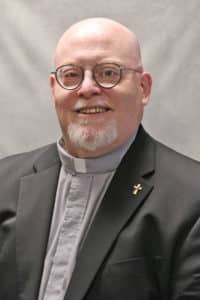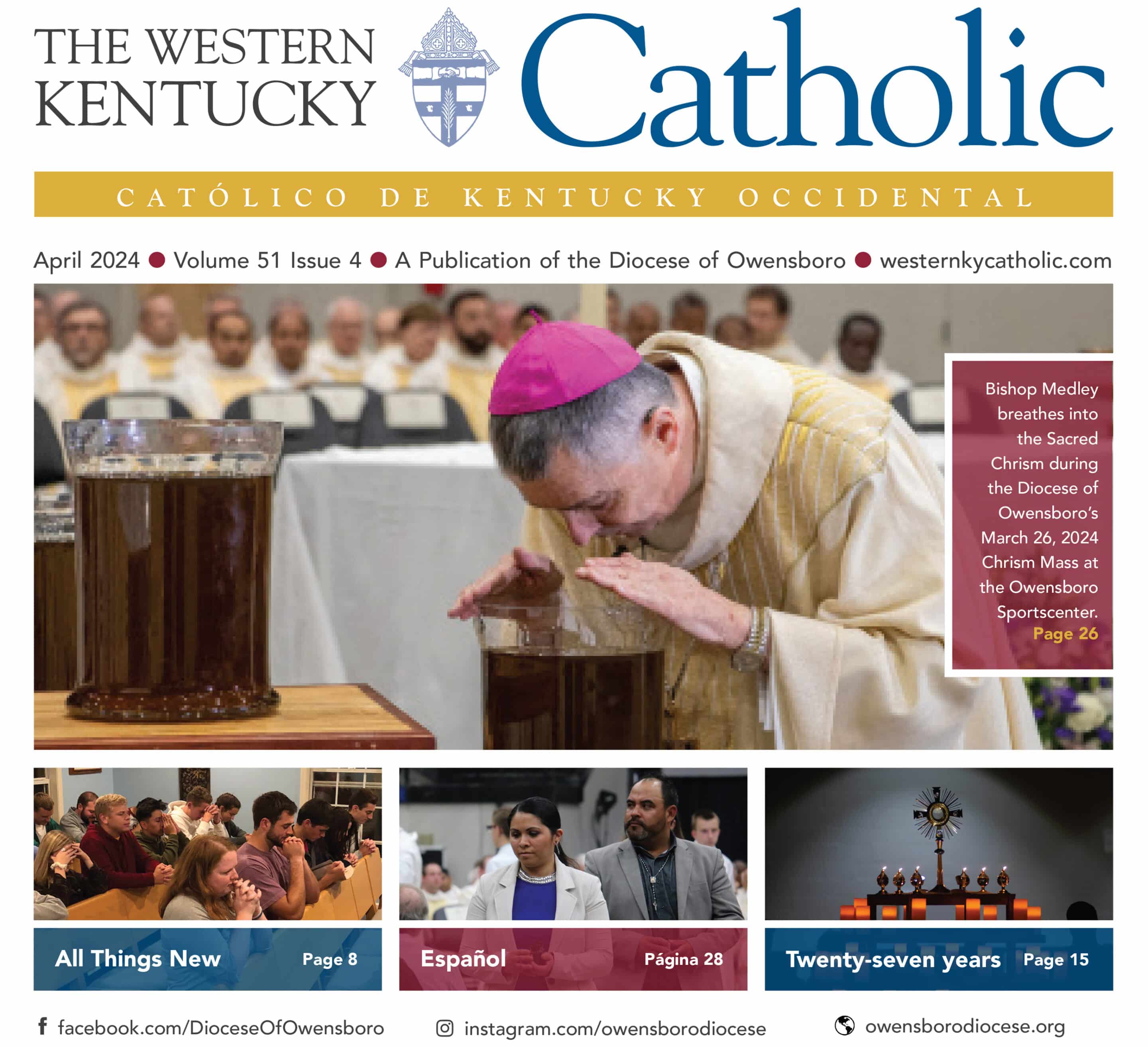‘Go, you are dismissed’

Dcn. Jay W. VanHoosier is the director of the Office of Faith Formation for the Diocese of Owensboro. FILE PHOTO
BY DEACON JAY W. VANHOOSIER, OFFICE OF FAITH FORMATION
In August 2019, the Pew Research Center released a study about the level of Catholic belief in the Real Presence of Lord in the Eucharist. It found that many United States Catholics do not believe the bread and wine used at Mass truly become the Body and Blood of Jesus Christ. Specifically, Pew found:
- 69% of all self-identified Catholics said they believed the bread and wine used at Mass are not Jesus, but instead “symbols of the body and blood of Jesus Christ.”
- According to Gregory Smith, associate director of the Pew Research Center, “Most Catholics who believe that the bread and wine are symbolic do not know that the Church holds that transubstantiation occurs.”
- 43% of Catholics that believe that the bread and wine are symbolic also believe that this symbolic presence is the position of the Church.
- 22% of self-identified Catholics reject the idea of transubstantiation – even though they know about the Church’s teaching.
Understandably, this information was alarming to the U.S. bishops. Put simply, to be Catholic is to believe that bread and wine consecrated at Mass becomes the Body and Blood of Jesus Christ. As Fr. Connor Danstrom said in his address at the Eucharistic Revival Gathering this past Dec. 6 in Owensboro, “You can’t be Catholic and not believe in the Real Presence.”
Although these findings can be attributed, as many bishops have stated following the release of this survey, to a failure in catechesis – the formal handing on of faith – I would argue that there is another equally valid reason that the Real Presence has lost resonance in the hearts and minds of many Catholics: they have forgotten that the Eucharist, by virtue of their Baptism, calls them to be people of mission.
The most important and highest form of worship for Catholics are the liturgies of the Mass. During Mass, we are first fed by Christ in Scripture during the Liturgy of the Word and then fed by his actual Body and Blood in the Liturgy of the Eucharist. Receiving these precious gifts of nourishment, we are called, as baptized disciples, to use them. In other words, we are not finished when Mass ends. In fact, our job as followers of Christ has just begun!
The word “mass” comes from the Latin word “missa” meaning “dismissed,” and was the name used in the Western Church for the primary worship service as early as the 5th century. In fact, worship was concluded with the words “Ite, missa est” – “Go, it (the assembly) is dismissed.” However, according to Pope Emeritus Benedict XVI, the word “missa” has come to mean something much more. In “Sacramentum caritatis,” he wrote, “In antiquity, missa simply met ‘dismissal’. In Christian usage, however, it gradually took on a deeper meaning. The word ‘dismissal’ has come to imply a ‘mission’. These few words succinctly express the missionary nature of the church” (51).
This has profound implications for Catholics. The Eucharist – what we receive in communion; the very Body and Blood of Jesus Christ; the source and summit of our faith – transforms us. We become what we eat. We are made holy. It urges us forth from the building in which we worship and out into the world to become Christ for whomever we meet! We have a job to do and the Eucharist gives us the strength and the grace to do it.
There will be some who will say that what we need to do in order to help reinforce the teaching of the Real Presence of the Lord in the Eucharist is to do more Eucharistic Adoration or more Eucharistic processions. These are not bad things. The Church does encourage them, after all. The danger lies in losing focus to what Adoration and processions are intended to draw our attention: what happens on the altar during Mass. The very Body and Blood of Jesus Christ substantially coming to us – salvation coming to us – and then it’s our responsibility to take Him out to the world. Even Adoration and Eucharistic processions call us to mission for they help us recall what happens at Mass (missa) – we are dismissed to love and serve the Lord.
The next time you go to Mass, pay close attention to the Concluding Rite. At the end, the deacon or priest may use one of the following dismissal statements: “Go and announce the Gospel of the Lord,” or “Go in peace, glorifying the Lord by your life.” Both speak to the job we have as disciples of Christ. It does not end at the church. The Body and Blood of Jesus Christ gives us the grace and the strength to be those disciples. Will you allow the very Real Presence of Jesus to transform you? To become holy? To become Him for everyone you meet? I pray that you will. Go, you are dismissed!
Data from https://www.pewresearch.org/fact-tank/2019/08/05/transubstantiation-eucharist-u-s-catholics/.
Dcn. Jay W. VanHoosier is the Director of Faith Formation for the Diocese of Owensboro. For more information visit owensborodiocese.org/faith-formation, email [email protected] or call (270) 852-8324.
Originally printed in the January 2023 issue of The Western Kentucky Catholic.

